English Intent
Reading, writing, talking and listening lay the foundations for lifelong learning; they allow children to access all curricular areas and embrace a wider range of opportunities in all aspects of life.
At Lower Meadow, we recognise that the development of an effective literacy skillset is fundamental to the achievement of a rich and fulfilling life. We use these skills every day in order to communicate with, and make sense of, the world around us. As such, the better we are at these skills, the more successful we can expect to be in life.
We recognise that improving literacy and learning will have an impact on children’s self-esteem, motivation, behaviour and attainment. It allows them to learn independently and is empowering. Our curriculum is underpinned by developing children’s abilities to speak, listen, read and write for a wide range of purposes, including using language to learn, communicate, think, explore and organise. Helping our children to express themselves clearly, through development of vocabulary, both orally and in writing, enhances and enriches teaching and learning in all subjects and prepares them for life after school. We immerse all children in the wonders of well-considered high quality texts to instill a love for reading, a passion for discovery and a confidence to explore their imagination.
Reading Intent
Every child has the right to learn to read, regardless of social and economic circumstances, their ethnicity, home language and special educational need or disability. At Lower Meadow, it is our intent that every child will be able to read fluently and with confidence, therefore facilitating their ability to thrive in all areas of the curriculum. Both word recognition and language comprehension are essential to the success of achieving high reading standards for all children. Therefore, it is our intent that every child will access a planned and purposeful reading curriculum with specific and consistent teaching of both of these areas. The teaching of phonics underpins our reading curriculum so that all children are equipped with effective decoding skills.
We encourage children to read widely and often, for both purpose and pleasure. We encourage children to be reflective readers who can respond to a wide range of texts. It is our intent not only to teach each child to read effectively, but to immerse each child in a rich and varied reading environment, and create a climate where the love of reading is promoted and valued by all. At Lower Meadow, we are relentless in our determination to create lifelong readers.
Writing Intent
Reading, writing, talking and listening lay the foundations for lifelong learning; they allow children to access all curricular areas and embrace a wider range of opportunities in all aspects of life.
At Lower Meadow, we recognise that the development of an effective literacy skillset is fundamental to the achievement of a rich and fulfilling life. We use these skills every day in order to communicate with, and make sense of, the world around us. As such, the better we are at these skills, the more successful we can expect to be in life.
We recognise that improving literacy and learning will have an impact on children’s self-esteem, motivation, behaviour and attainment. It allows them to learn independently and is empowering. Our curriculum is underpinned by developing children’s abilities to speak, listen, read and write for a wide range of purposes, including using language to learn, communicate, think, explore and organise. Helping our children to express themselves clearly, through development of vocabulary, both orally and in writing, enhances and enriches teaching and learning in all subjects and prepares them for life after school. We immerse all children in the wonders of well-considered high quality texts to instill a love for reading, a passion for discovery and a confidence to explore their imagination.
Phonics at Lower Meadow
At Lower Meadow, we aim for all our children to become fluent, confident readers who are passionate about reading.
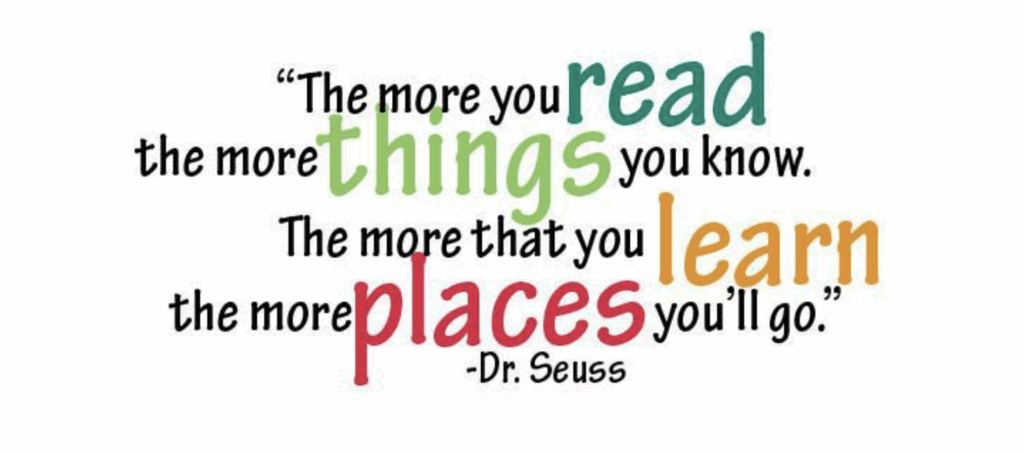
Children who read regularly or are read to regularly have the opportunity to open the doors to so many different worlds! More importantly, reading will give your child the tools to become independent life-long learners.
We can achieve this together through:
- Read Write Inc, a program to help to your child read at school.
- Encouraging children to develop a love of books by reading to them daily, at home and at school.
- Giving children access to a wide range of books at school and at home.
At Lower Meadow, we use Read Write Inc Phonics (RWI) to give your child the best possible start in reading. We have put together a guide to how the RWI programme works together with some useful links.
What is Read Write Inc?
Read Write Inc (RWI) is a phonics complete literacy programme which helps all children learn to read fluently and at speed so they can focus on developing their skills in comprehension, vocabulary and spelling.
How will RWI be taught?
All children are assessed regularly by our RWI lead teacher so they work with children at the same level. This allows complete participation in lessons.
Nursery
When appropriate, children will be introduced to the initial sounds in short five minutes sessions.
Reception
In Reception all children will learn how to ‘read’ the sounds in words and how those sounds can be written down.
Reading
The children:
- learn 44 sounds and the corresponding letters/letter groups using simple picture prompts – see below
- learn to read words using Fred talk and sound blending
- read from a range of storybooks and non-fictions books matched to their phonic knowledge
- work well with partners
- develop comprehension skills in stories by answering ‘Find It’ and ‘Prove It’ discussion questions
Language
The children work in pairs so that they:
- answer every question
- practise every activity with their partner
- take turns in talking and reading to each other
- develop ambitious vocabulary
Year One & Year Two
Children follow the same format as Reception but will work on complex sounds and read books appropriate to their reading level. Once children become fluent speedy readers they will move off the RWI programme.
Children will be taught how to read as follows:
Before you start to teach your child, practise saying the sounds below. These are the sounds we use to speak in English.
Fred Talk
We use pure sounds (‘m’ not’ muh’,’s’ not ‘suh’, etc.) so that your child will be able to blend the sounds into words more easily.
At school we use a puppet called Fred who is an expert on sounding out words! we call it, ‘Fred Talk’. E.g. m-o-p, c-a-t, m-a-n, sh-o-p, b-l-a-ck.
The following video is an example of blending sounds with Fred. https://www.youtube.com/watch?v=dEzfpod5w_Q
The children are taught the sounds in 3 sets.
Step 1:
Set 1 Sounds are taught in the following order together with rhymes to help children form the letters correctly and instantly recognise sounds ready for blending.
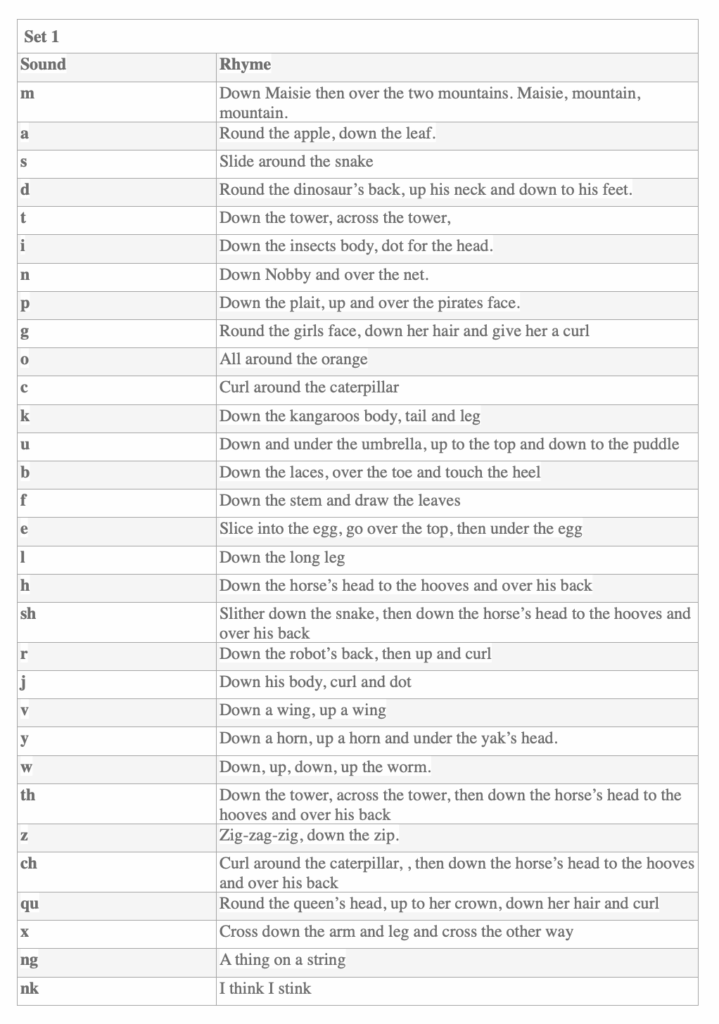
Please do not use letter names at this early stage.
Children will also use pictures for each sound to help recognise the sound and then form the shape of the sound.
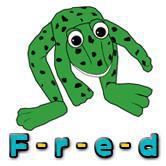
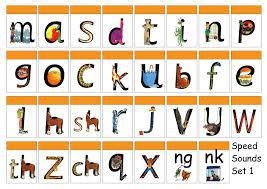
Step 2:
The children are then taught Set 2 Sounds – the long vowels. When they are very confident with all of set 1 and 2 they are taught Set 3 Sounds.
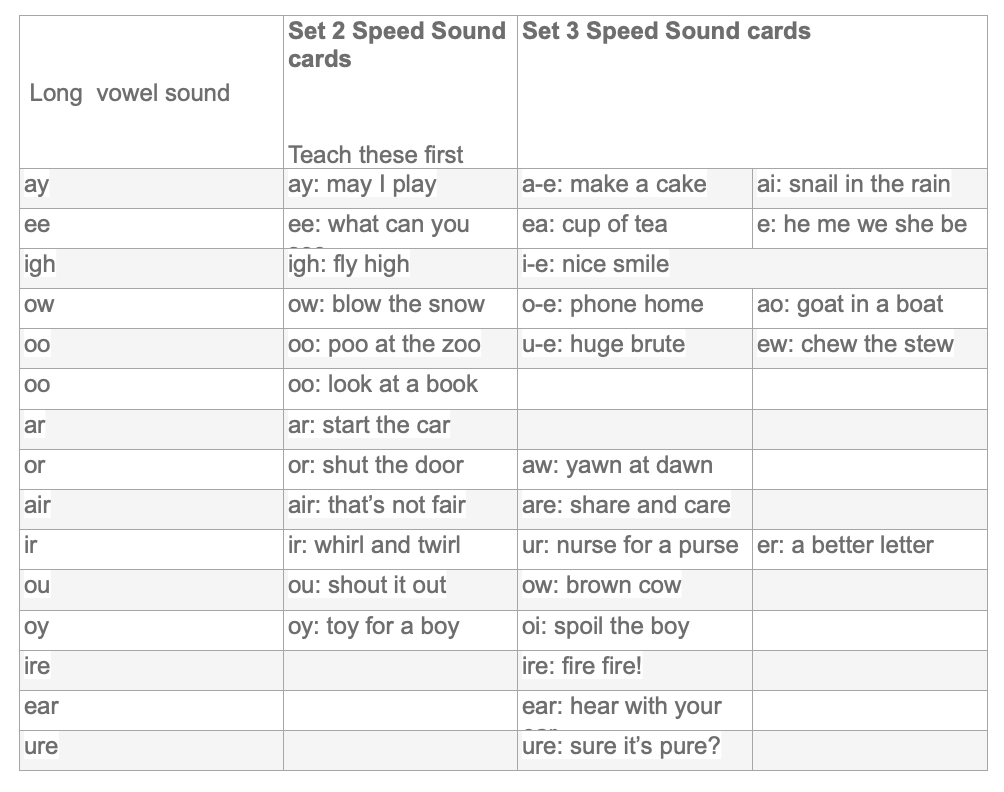
Nonsense words (Alien words)
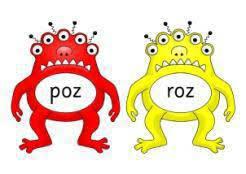
As well as learning to read and blend real words, children will have plenty of opportunities to apply their sound recognition skills on reading ‘Nonsense words’. These words will also feature heavily in the Year One Phonics Screening check in the summer term.
Step 3:
Children will be introduced to ‘Ditty books’ when they successfully begin to read single words. The short vowels should be kept short and sharp:
Children use sound-blending (Fred Talk) to read short ditties. They will bring these home once they have read and discussed the book in class. Children will then be challenged to use their developing phonic knowledge to write short sentences.
Within all the books children will have red and green words to learn to help them to become speedy readers. Red words are words that are not easily decodable and challenge words to extend children’s vocabulary. Green words are linked to the sounds they have been learning and are easily decodable.
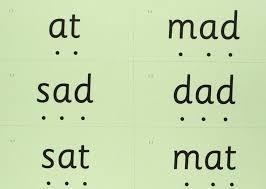

Dots and dashes represent the sound each letter makes.
To help at home:
Your child will start to bring books home when they are confident readers. Please help them to read and give lots of praise!
If you have any other questions about RWI, please see your class teacher, our reading leader Mrs Birch or our Literacy Lead Mrs Duncan.
Phonics Screening Check Year One:
The Year 1 phonics screening check is a short, light-touch assessment to confirm whether individual pupils have learnt phonic decoding to an appropriate standard.
It will identify the children who need extra help so they are given support by their school to improve their reading skills. They will then be able to retake the check so that schools can track pupils until they are able to decode.
Virtual Classroom Support for Parents
Useful websites for Parents
Please find a list of websites that you may find useful in helping you and your child learn about phonics. Games and fun activity websites are also included.
http://jollylearning.co.uk/ – Games and information for parents
http://www.phonicsplay.co.uk/ – many games to play
http://www.bbc.co.uk/bitesize/ks1/literacy/phonics/play/ – fun games for the children to play
http://www.ictgames.com/literacy.html – fun games for the children to play
http://www.kenttrustweb.org.uk/kentict/kentict_home.cfm – fun games for the children to play and information for parents
http://www.ngfl-cymru.org.uk/ – fun games for the children to play
http://www.starfall.com/ – fun games for the children to play
http://www.firstschoolyears.com/ – fun games for the children to play
Sparklebox – lots of resources to print off and help you support your child at home
BBC Bitesize – many games to play covering all areas of the curriculum
